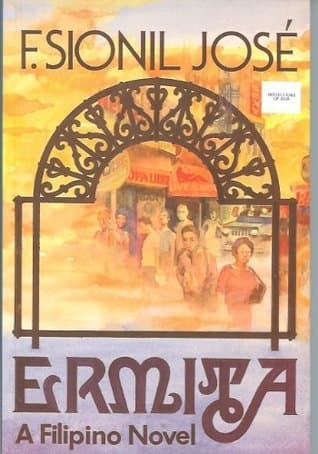
Book Review Summary: Ermita
Introduction
"Ermita" is a novel written by F. Sionil José, a renowned Filipino author known for his epic work, the Rosales saga. The story revolves around the titular character, Ermita Rojo, a fabulous prostitute who is exposed in her exquisite nudity surrounded by influential people in Manila. Set in the backdrop of Manila before 1941, during the Japanese Occupation, and the corrupt Marcos regime, this novel provides a glimpse into the enclave of privilege and affluence, as well as the putrefaction of society. In this article, we will explore the book's themes, analyze readers' views, and discuss the reasons for recommending or not recommending it.
About F. Sionil José
F. Sionil José, born in 1924 in Pangasinan province, is a prolific Filipino author who has been writing internationally since 1949. He is best known for his epic work, the Rosales saga, which encompasses a hundred years of Philippine history. José has been involved with international cultural organizations and has received numerous awards for his contributions to literature. His works have been translated into several languages, including his native Ilokano.
Analysis of Views
- Challenging read: Many readers found "Ermita" to be a challenging read due to its complex themes and narrative structure. Some found themselves irritated at times, but rereading the book with a reading buddy or participating in discussions helped them gain a deeper understanding of the story.
- Historicity and authenticity: Readers appreciated the historical context of the novel, which captures the raw and unforgiving truth of Manila during World War II. The book's authenticity in portraying the city and its people resonated with readers, particularly the characters' personalities and motivations.
- Complex female protagonist: Ermita Rojo, the main character, was praised for her complexity as a woman forced to earn her keep in a less than honorable way. Readers found her relatable and empathetic, despite her profession. Ermita's journey and struggles drew readers into the story, making them invested in her fate.
- Diverse characters: The novel features a cast of diverse characters, including intellectuals, users, greedy conmen, sinners, and virtuous nuns. Readers found these characters realistic and engaging, with their individual stories adding depth to the overall narrative.
- Immersion in Manila's history: The setting of "Ermita" in Manila during the tumultuous years of occupation and corruption provided readers with an immersive experience. They appreciated the historical context and felt transported back in time through the author's vivid descriptions of the city and its people.
- Mature content: Some readers were put off by the mature content of the book, particularly the explicit descriptions of sexual encounters between Ermita and her clients. While some found these scenes necessary for portraying her profession, others felt they detracted from the overall storytelling.
- Lack of closure: A few readers felt that the ending of "Ermita" was open-ended and left them unsatisfied. They felt that there were no easy answers to the complex issues raised in the novel, and that Ermita's story continued even after the conclusion of the book.
Reasons for Recommendation
- Engaging storytelling: Readers found "Ermita" to be an engaging and well-written novel that kept them captivated from beginning to end. The swift narration of traumatic events during World War II and the immersive setting of Manila contributed to their enjoyment of the book.
- Authentic portrayal of Philippine society: The novel provides a glimpse into the underground world of Manila, where drugs, prostitution, politics, and rumors shape society. Readers appreciated the authenticity of José's portrayal of these aspects of Philippine culture and history.
- Complex female protagonist: Ermita Rojo's complex character resonated with readers who appreciated her struggles and her search for happiness despite her profession. Her journey was seen as relatable and thought-provoking, making readers emotionally invested in her story.
- Historical context: The historical context of "Ermita" adds depth to the narrative and provides readers with an immersive experience. The portrayal of Manila during World War II and the corrupt Marcos regime offers insights into Philippine history that readers found valuable.
- Authenticity and realism: Readers found José's writing style authentic and realistic, particularly in his depiction of characters and their motivations. They appreciated his ability to capture the essence of Philippine society and its complexities through his prose.
Reasons for Not Recommendation
- Mature content: Some readers found the explicit descriptions of sexual encounters between Ermita and her clients distasteful or off-putting. They felt that these scenes detracted from the overall storytelling and made it difficult to enjoy the book fully.
- Open-ended ending: A few readers felt that the ending of "Ermita" lacked closure and left them unsatisfied. They felt that there were no easy answers to the complex issues raised in the novel, which made it challenging to fully recommend it without reservation.
- Limited appeal: Readers who prefer more conventional or lighthearted reads may find "Ermita" challenging due to its mature content and exploration of controversial themes such as prostitution and corruption. It may not appeal to those seeking a straightforward or uplifting narrative experience.
Conclusion
"Ermita" by F. Sionil José is a novel that explores themes of privilege, corruption, and personal struggles set against the backdrop of Manila during tumultuous times. While some readers found it challenging due to its mature content and open-ended ending, others appreciated its authentic portrayal of Philippine society and its complex female protagonist, Ermita Rojo. The book's immersive historical context and exploration of controversial themes make it a thought-provoking read for those seeking a deeper understanding of Philippine culture and history. Overall, "Ermita" is recommended for those who enjoy literary works with complex characters and engaging storytelling that delve into societal issues and personal struggles.